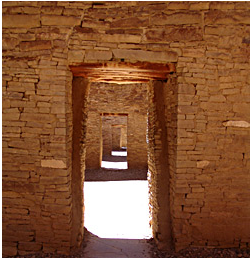Publication Date
7-1-2011
Abstract
This dissertation explores how the introduction of Indian gaming has affected identity, culture, and political economy on the Pala Indian Reservation in San Diego County, California. I propose that the economic and political changes that have taken place at Pala since the Pala Casino opened in 2001 can be explored against a theoretical backdrop of how history, politics, and power have constituted and are constituting local categories of identity, belonging, and culture for the Pala Band of Mission Indians. The theoretical understanding of Indian gaming as a consequence of federal policies has contributed to my analysis of how the Pala casino has affected life on the reservation and for Palas tribal members. In the decade since the Pala casino opened, the Pala tribe has experienced a tremendous improvement in its ability to care for its people and plan for its future. Even more significantly, the financial opportunities and stability provided by the casino have allowed the tribe access to a level of political capital that is challenging and changing the dominant ideological structures of inequality that have been brought to bear against Indian people for centuries. Yet, this has not meant that the Pala band has strayed far from its traditional and cultural roots. The Pala Casino represents the most visible and successful example of the Pala tribe's long-standing pattern of advocating for its own interests. The tribe's financial success, far from weakening tribal identity, has instead served to strengthen and support the perpetuation of traditional cultural beliefs and practices, several of which I demonstrate throughout the dissertation. I conclude that if anything at Pala has changed, it is the increased level of scrutiny from outsiders and their attendant questions about tribal and cultural authenticity. The conjuncture of shifting goals for Indian policy, academic and institutional ideologies such as those perpetuated by anthropologists, public expectations, and the lived experience of Indians themselves has created the context within which Pala and other Indian peoples must struggle to assert their self-sufficiency and modernity while simultaneously defending the authenticity of their cultures.'
Keywords
Indian gaming, political economy, identity, Pala Band of Mission Indians
Document Type
Dissertation
Language
English
Degree Name
Anthropology
Level of Degree
Doctoral
Department Name
Anthropology
First Committee Member (Chair)
Les W. Field
Second Committee Member
Beverly R. Singer
Third Committee Member
Carole Nagengast
Fourth Committee Member
Jane Hill
Recommended Citation
Gaughen, Shasta Christina. "Against the Odds: Indian Gaming, Political Economy, and Identity on the Pala Indian Reservation." (2011). https://digitalrepository.unm.edu/anth_etds/26

